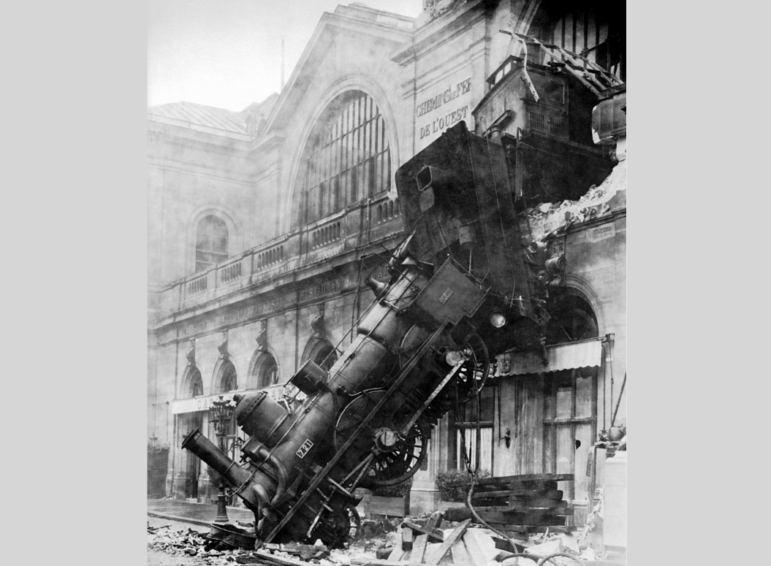 Image: Creative Commons
Image: Creative Commons
If there is one type of lesson that journalists never forget, it is the kind that follows a strategic reporting mistake that stalls an otherwise promising investigation.
GIJN asked a diverse group of nine investigative reporters to share one memorable misstep they’ve made in an investigative project, and the key lesson they learned.
What is striking about their responses is that most of these errors involved dealing with uncooperative human sources – and most of the takeaways emphasize the value of extra preparation before interacting with them.
What investigative mistake have you made that others can learn from?
Vuyisile Hlatshwayo — investigative reporter at the Inhlase Centre for Investigative Journalism in Southern Africa (Eswatini)
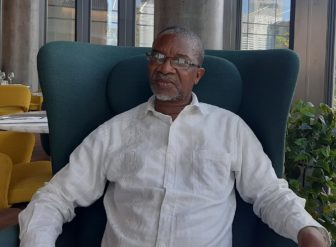
Courtesy: Vuyisile Hlatshwayo
Vuyisile Hlatshwayo, director of the Inhlase Centre for Investigative Journalism in Eswatini. Image: Courtesy of Hlatshwayo
“If there was one investigative mistake that I wouldn’t like to repeat in my career, it was to give too much information to a public relations officer at a government regulator. I learned this with a local regulatory body in a story about a school uniform pricing cartel. I was asked by that body – a competition commission – to send a questionnaire so that they could provide written responses. But, lo and behold, two days down the line, the commission issued a notice in the national newspapers notifying the public that it was investigating price fixing of school uniforms! It went on to invite concerned members of the public to make submissions. I was sidelined in the whole investigation and didn’t even get the report at the end of the so-called investigation. That’s how I learned — the hard way — that you don’t have to give too much information to your accountability sources because they have a tendency to kill stories.”
Axel Gordh Humlesjö — investigative reporter at public broadcaster SVT (Sweden)
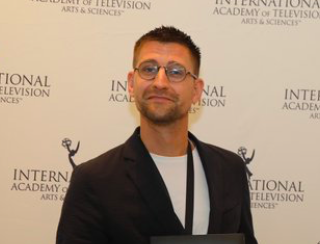
SVT investigative reporter Axel Gordh Humlesjö. Image: Screenshot
“We did a lot of undercover stuff with our latest story, and it was a success and a failure. The investigation was a bribery story about the world’s biggest security company, which has about 400,000 employees. We had a lead in London about a paid-for trip, so we wanted the hotel bill, and the hotel wouldn’t give it to us. So I created a Gmail account in the name of the public official, with some numbers after it, and called the hotel and said: “I’m doing my bills; can you send me my bill for my latest stay there?” I gave them the email address, and they said they’d send it right away. But I never received the email — it went to the real guy’s email! I called again, and they said they’d sent it to the email registered on their database. I tried saying, ‘Oh no, that’s an old email,’ and then I got the bill to the new address, which was good – but unfortunately the official was now alerted that we were on to him.
“The lesson learned is that creativity is good, but you have to do role-playing with colleagues to see what could be the outcome. I could have told them the email they had was old in the first call. When you think two steps ahead, you have to think of the third and the fourth steps that can happen.”
Martha Mendoza — Pulitzer-winning investigative reporter at the Associated Press (United States)
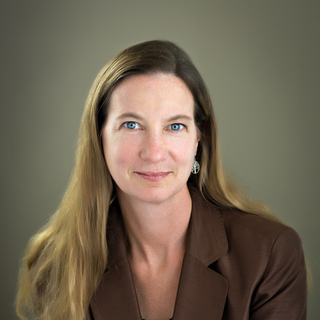
Associated Press investigative reporter Martha Mendoza. Image: Courtesy of Mendoza
“I always tell people what I’m investigating – I’m not good at being sneaky about it. On Seafood from Slaves, we tracked a bunch of seafood to the US. I went to a great seafood expo, and I interviewed the director of the expo on day one, first thing in the morning. I thought: I want to ensure I get this guy on camera, as he was in charge of seafood imports into the US at some level. But afterward, he put out a blog post to all the companies there, along with my photo — and said, ‘Martha Mendoza from the AP is here, writing about labor abuse; you don’t need to talk to her.’ Then, every time I would approach the owner of a seafood company, they would just be, like, ‘No, we’re not going to talk to you.’ Before I could even open the door, and say ‘I have a dossier here with your company’s export records, and we tracked the seafood; we have X photo.’ I couldn’t even open the conversation. I should have waited until the end of the meeting to talk to him.”
Mia Malan — Editor-in-Chief at the Bhekisisa Centre for Health Journalism (South Africa)

Bhekisisa Centre for Health Journalism editor-in-chief Mia Malan. Image: Courtesy of Malan
“I’ve learned to never ever trust a second-hand source for statistics. That may sound simple, but many journalists don’t consider, for instance, a health minister quoting international statistics — so, not from his own or her country — or, say, a mental health organization issuing a press release on the proportion of people who have depression, a second-hand source. I’ve been amazed at how often those sources are wrong. Unless you’ve checked the original source they’re quoting, do not believe the statistic and don’t quote it. The same goes for a journal study — no matter how prestigious the journal — quoting another study’s results. Go and check the original study and see if it’s been interpreted correctly. You will be amazed to see how often study authors ‘bend’ findings to suit their arguments.”
David McSwane — investigative reporter at ProPublica (United States)

ProPublica investigative reporter David McSwane. Image: Screenshot
“I’ve made the mistake of talking to somebody, and they’ll say, in passing: “Was that off the record?’ I’ll say, “Well, we’d have to agree to be off the record’ — and then thinking that was clear. And later they’ll say: ‘I was under the impression we were off the record.’ I’ve learned we can’t assume source proficiency with journalist rules, and it’s better to just lay it out very explicitly: ‘This conversation is on record. If you want to talk off record, we can do that another time, or we can talk off record now, and be on record later.” You don’t want anyone to feel tricked.
McSwane adds a second takeaway: “You really do need to pick the long-term stories about which you’re passionate, because it’s going to be a slog — if it’s a topic you don’t care about that much, you won’t do a great job.”
Rosa Furneaux — investigative health reporter at The Bureau of Investigative Journalism (United Kingdom)

TBIJ investigative health reporter Rosa Furneaux. Image: Screenshot
“I have erred on the side of being more cordial than I ought in the accountability interview with someone I suspected was a bad actor, and done that interview too soon. I’ve had situations where I know I have a tricky source who’ll sit down with me, and I‘ve had to decide whether to immediately whack them with hard questions, or try to butter them up to get a second interview. I’ve misjudged that, where I’ve gone to a source a bit too early — where, lacking evidence, I’ve been afraid to whack them with hard questions, knowing they won’t come back to me for a second interview. They say: ‘Well, I’ve already talked to you once.’ Whereas if I‘d waited a few more weeks, I’d have known the exact tough questions to put to them, and, when I got that one opportunity, I could get the answers I needed and not need to worry about a second interview.”
Juliana dal Piva – columnist for UOL Notícias, former investigative reporter at O Globo (Brazil)
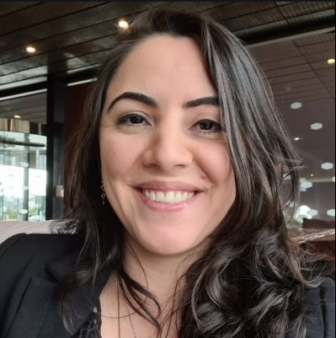
UOL Notícias columnist Juliana dal Piva. Image: Screenshot
“One mistake that I learned a lot from was when I was checking data on political disappearances at the time of Brazil’s military dictatorship. A few years ago, this data was very disorganized. One day, I was asked by my newspaper to produce a report — in 24 hours — on the cases of political disappearances from the dictatorship specific to Rio de Janeiro. This meant compiling about 30 cases out of a total of 500 victims — among the total number of disappeared and people who were executed — but whose families were able to bury the bodies. Unfortunately, when looking at the data spread across different surveys, I forgot a name.
“A few months later, when investigating documents from the dictatorship that had been released for consultation for the first time, I ended up finding the first document from the dictatorship in almost 40 years that acknowledged the death of the murdered guerrilla. I’m sure I only noticed his name in the huge list of names because I had made that mistake, and I never forgot the name and history of Mário Alves. Mistakes teach you.”
Alexandre Brutelle – freelance investigative reporter and director of the nonprofit Environmental Investigative Forum (France)
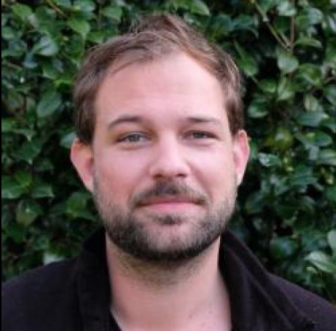
Environmental Investigative Forum director Alexandre Brutelle. Image: Screenshot
“During our investigation into unlawful fracking operations in southern Tunisia by a French-Tunisian company, our task was to ‘hunt’ for water ponds located in the middle of the Tunisian part of the Sahara Desert — quite a big area of interest. We were already doing a poor job of looking online for the official limits of the company’s oil and gas concession in order to restrict our searches, but could not find anything. So, for weeks, we reviewed a suspected area of 40,000 square kilometers that could be located anywhere in the south of the country, mapping everything we could. At the end of the project, we realized the ETAP (Tunisia’s national oil agency) website already had a map showcasing these concessions. Instead of looking for ‘Company X oil concession’ on Google, we learned, instead, to always look for the data source first. So try to Google the category — ‘oil concession registry,’ or similar other queries — directly at the start of an oil industry investigation!”
Dan McCrum – investigative reporter at the Financial Times (United Kingdom)
In a recent GIJN webinar, McCrum emphasized two related mistakes he made while investigating massive fraud at Germany’s giant Wirecard electronic payments company.

Financial Times investigative reporter Dan McCrum. Image: Courtesy of McCrum
“In early 2016, a new set of short sellers came along who decided to publish their allegations anonymously — what is known as a short-seller attack, hoping to drive the share price down. They shared a copy of their dossier with me in advance, which I thought might force German regulators to investigate. But I got a bit carried away. I was determined to ‘own’ the story, and be the first to write about it — and I felt the dossier was out in the public domain. I made a mistake, where I agreed that I wouldn’t ask anyone for comment until it was published, because they didn’t want to tip off the company. So I couldn’t test it properly. So I just wrote a very short blog post, which just drew attention to the fact that this report had been published — and with a link to the report.
“Well, the phrase we use at the FT is, if you ask the question: ‘Should we run this by a lawyer?’ then you already know the answer. Because the blog post was just a couple of sentences, I thought it would be safe, and that was quite a big mistake — because Wirecard’s lawyers started sending threatening letters, saying the Financial Times was responsible for publishing this entire report, and that therefore we were on the hook for everything in it. That meant Wirecard could file a libel suit at any point in the next year. What it meant was I couldn’t write about anything in this 100-page report; it would have been daring Wirecard to sue us. I think that chilled other people investigating it. I gave up for a bit. But I always had the backing of my editor on the team. Luckily, stories get stories, and eventually whistleblowers came forward.”
Additional Resources
Investigative Tactics That Reporters Love
Megha Rajagopalan: What I’ve Learned About Investigative Journalism
 Rowan Philp is a reporter for GIJN. He was formerly chief reporter for South Africa’s Sunday Times. As a foreign correspondent, he has reported on news, politics, corruption, and conflict from more than two dozen countries around the world.
Rowan Philp is a reporter for GIJN. He was formerly chief reporter for South Africa’s Sunday Times. As a foreign correspondent, he has reported on news, politics, corruption, and conflict from more than two dozen countries around the world.